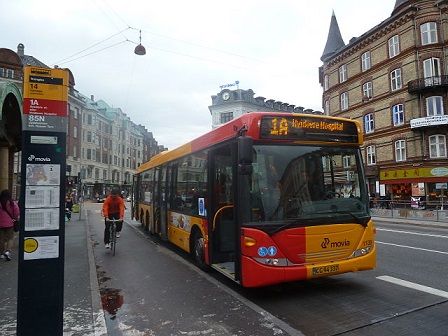The public transport company Movia that runs buses in the capital region has partially backed down in the face of criticism over its decision to remove printed timetables from bus stops.
The decision was taken at a board meeting yesterday.
READ ALSO: Bus timetables may return to Copenhagen bus stops
However, there will be a slight difference. The complete bus route will be shown, but it will still be necessary to rely on the displays at bus stops or digital means to find the exact times that the buses run.
A grudging admission
Commenting on the reinstatement, Kirsten Jensen, the chair of Movia’s board, explained: “One of the things that has been most prominent in the debate is that it has become too difficult to see the route the bus takes.”
The company removed the timetables in December ostensibly as a cost-cutting exercise to save 1.6 million kroner, arguing that users could just use their mobiles or go online at home to obtain the information digitally.
The upshot was that if you were waiting at a bus stop, all you could see was the number of the bus and where it starts and terminates.
Get with the times, elderly urged
However, complaints from private citizens, organisations for the elderly and the consumer watchdog Tænk have persuaded the company to have second thoughts – at least for the time being.
According to figures from the national statistics keeper Danmarks Statistik, 210,000 elderly people don’t have digital capability. The lack of bus information can also be an issue for visitors and tourists.
However, it appears that Movia has not completely abandoned its goal of dragging everybody kicking and screaming into the digital age.
“The debate has made a deep impression on us, so we’ve decided to ensure a smoother transition towards digitalisation by enhancing the possibility to see the bus route and direction at bus stops,” added Jensen.
So don’t be surprised if we have a rerun of the same debate in a year or so’s time.














